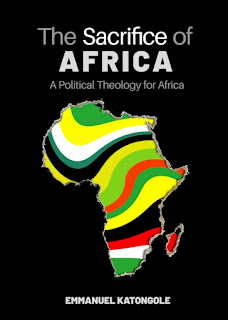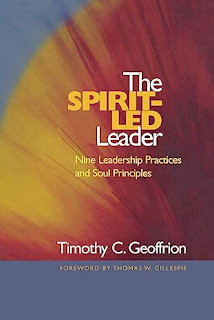The Sacrifice of Africa by Emmanuel KATONGOLE
Originally written under the title Church and State in Africa: Toward a Constructive Social Imagination, in The Sacrifice of Africa, distinguished author Emmanuel Katongole has, in my opinion, put together a groundbreaking reflection with remarkable simplicity and clarity that qualifies to be a guide to all who are and have been concerned by the many contradictions and paradoxes of the state of the Church and the Nation-State in Africa. What might a Constructive Social re-imagination of Africa look like? Could we put forward a strong argument for a fresh, concrete and doable Social alternative for Africa that will not only remain a theoretical possibility?
Africa needs saving! This salvation is long overdue. It’s not salvation in a spiritual sense (not only), but salvation from a Ghost that the author, borrowing from Adam Hoschschild, calls “King Leopold’s Ghost”. This salvation is needed as the lack of it explains why all efforts and strategies for improving and managing failing institutions in Africa have had little success.
Emmanuel is convinced that all politics are about stories and imagination. Stories not only shape how we view reality but also how we respond to and interpret life, thus defining the very sort of persons we become. In other words, we are how we imagine ourselves and how others imagine us. Who we are and what we are capable of becoming, depends very much on the stories we tell, the stories we listen to, and the stories we live and accept. Stories not only share our values, aims, and goals; they also define the range of what is desirable and what is possible.
That is why a notion like “Africa” names not so much a place, but a story – or set of stories about how people of the continent called Africa are located in the narrative that constitutes the modern world. Stories are the predictors of performances within the script of life.
The author asks: What underlying stories produce corruption, murder, selfishness and other social ills with Mobutu, Bokassa, Id Amin and Mugabe (with the politics of greed and plunder) as radical examples of their manifestation? And what difference does or can Christianity make in Africa?
The book essentially guides us to detect, deconstruct and understand the Operative Assumptions of the nation-state in Africa. The social history of Africa sufficiently shows that the post-independence African leaders were but colonial “type” that is, mimetic reproduction of the colonial actors. Africa needs to address ways in which the colonial imagination continues to live in the present even while these ways include seemingly noble ideals of “civilization, humanitarian and concern for the poor” which have led in many cases to deception or perpetuation of the colonial system. Reason why, the actors have changed but the script have remained unchanged.
Part of the manifestation of King Leopold’s Ghost is that the waste of African lives seemed to have reached, in the mind of all – African and non-African, a certain degree of acceptability as part of the way of life. Once this dispensability of African lives has been accepted and come to be expected as part of the official, normal way of nation-state politics, postcolonial successors to the colonial project have had no problem perpetuating the same shameful sacrificing of lives in pursuit of their political ambitions and greed. This mentality, this story need to be vehemently confronted in all spheres of life in Africa. Christianity itself would have to find a way of overcoming its’ Western heritage.
Emmanuel’s central argument is that there is a “Big lie” at the heart of Africa’s inception into modernity. Modernity claims to bring salvation to Africa, yet the founding story of the institutions of modern Africa rejects Africa itself. This story has shaped colonial Africa and continues to drive the successor institution, the nation-state. Historically, the story translated into myriads forms of use and abuse, sacrificing African lives and ultimately Africa itself. This is why a new future in Africa requires much more than strategies and skills to solve the problems of nation-state politics. It requires a different story that assumes the sacred value and dignity of Africa and Africans, and is thus able to shape practices and policies, or new forms of politics, that reflect this sacredness and dignity. (Sacra + fecere = make sacred; thus the sacrifice of Africa could be read, Making Africa Sacred).
We must dare to invent the future – Thomas Sankara, 1985
Sankara’s brief but impressive revolutionary leadership in Burkina Faso give a good example of the type of social re-imagination that is needed for a new future to take shape Africa:
- Intellectual Clarity: Sankara clearly understood the foundation of Burkina Faso and was even able to trace the neocolonial exploitation to the story of plunder is hardwired into Africa modernity that make Africa a “paradise for some and a hell for others”.
- Revolutionary Madness: for Sankara the whole project of seeking to “invent the future” was a form of madness. For instead of shaping the future according to predictable patterns of the past and realities of the present (the rational thing to do), inventing the future required reshaping the present according to a vision of a future yet to come. The task of invention the future is essentially one of imagination.
- Commitment and sacrifice: By lunching immediate and far-reaching reforms and project, Sankara’s revolution reveals the importance of courage, urgency, passion and relentless commitment and sacrifice required to face the challenges of Africa.
With all their shortcomings, how then are leaders like Sankara formed? What drives them? Where do they find their energy and focus? And how is the clarity of vision, courage, and madness essential to the task of inventing the future cultivated? How can such commitment and sacrifice be nurtured and sustained over time?
Emmanuel points to the futility of trying to invent the future without the necessary elements of memory, community, and story.
- Memory – inventing the future requires more than catching the vision. It requires a sustained practice of memory that includes but is not limited to telling stories like Sankara’s and other tail-blazers (Bishop Paride Taban, Angelina Atyam, Maggy Barankitse ect.)
- Community – there is need for communities that reflect the message of the revolution. A community of convinced people, not conquered people.
- Story – behind Sankara’s use of quasi-religious language and metaphors, one can detect a desperate search for a vision, a story, and language with which to shape and communicate his revolutionary ideals although he never found one.
Story to what end? A new social imagination. A new story of “in the beginning”. Church is not only well suited for this task; it is uniquely gifted for it and called to it. For the Church’s very mission and identity is to be a community of conversion, a community that is constantly gathered not only to lament the social, cultural, economic, and political disintegration of Africa, but to remember, and celebrate the story of creation, God’s constant journey with his people, and God’s self-giving through his Son.





Comments
Post a Comment